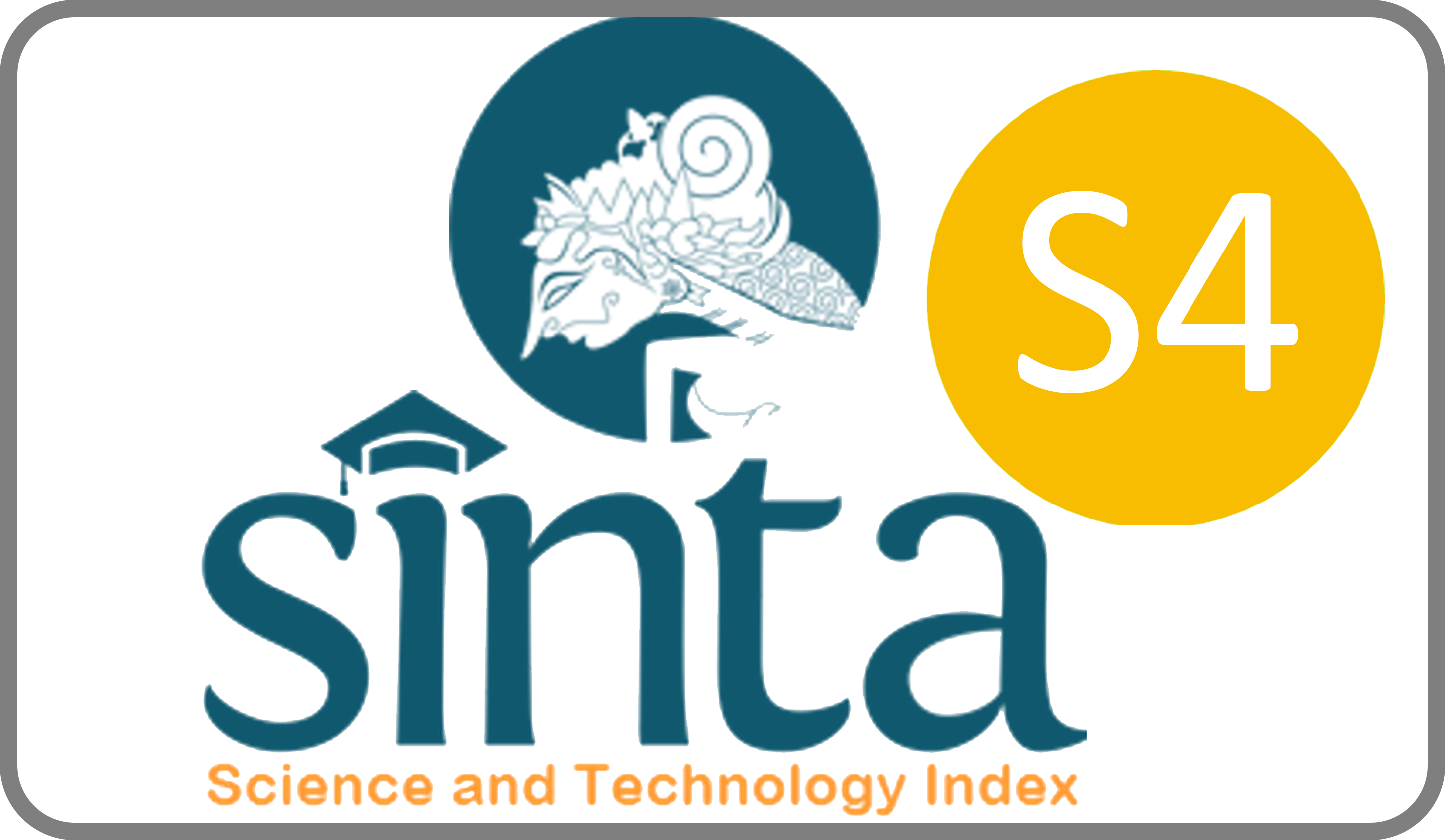YOUTH PEOPLE’S CIVIC AND POLITICAL ENGAGEMENT AT SMAN 1 GIRI, BANYUWANGI REGENCY
Downloads
This community service activity aims to increase the political and civil literacy of novice voters in preparation for the 2024 Simultaneous Elections in Indonesia. The targets of this community service activity are school students or youth who are at least 17 years old in the year the 2024 Simultaneous Election will be held. Youth were chosen as the main target because they are a group with a large proportion in the 2024 election contestation which will determine the future of democracy. As new voters, they need preparation and a deep understanding of how to participate in the political process effectively to determine the direction and policies of government. For this reason, the Public Administration Department of Universitas Airlangga will partner with the East Java Provincial Education Office which will later provide guidance to the SMAN 1 Giri, Banyuwangi Regency to hold a community service program at the school. Community service activities will involve understanding the political system, democratic processes, political issues, and the importance of active political participation. Activities will be carried out through three main stages: preparation, implementation and evaluation. The preparatory stage involves collecting and compiling relevant political and civic literacy materials. Next, the implementation stage will involve counseling, workshops and group discussions to provide in-depth understanding to novice voters. The evaluation stage will be carried out to measure the effectiveness of the program and obtain feedback from participants. It is hoped that this activity will provide a fundamental contribution in increasing the political and civil literacy of novice voters. With a better understanding of the political system, first-time voters will be able to make good political decisions, participate actively in the political process, and critically evaluate the information they receive.
Ali, Idrees. (2014). For Indonesian Election, Low Youth Turnout Predicted. VOA. Retrieved from https://www.voanews.com/a/indonesian-election-low-youth-turnout-predicted/1953217.html
Allam, Siti Nurshahidah Sah, Mohd Sufiean Hassan, Mohamad Hafifi Jamri, Nur Shazana Abdul Rani, Siti Nur Izyandiyana Ab Hadi, Khairul Azhar Meerangani, (2022). New Young Voters’ Decision to Vote: Impact of Access, Analysis and Evaluate, Create and Act. International Journal of Academic Research in Business and Social Sciences, 12(4), 1568-1581.
BPS. (2021). Survei Sosial Ekonomi Nasional (Susenas) Maret 2021. Jakarta: Badan Pusat Statistik Indonesia
Cammaerts, Bart, Bruter, Michael, Banaji, Shakuntala, Harrison, Sarah and Anstead, Nick (2014) The myth of youth apathy: young Europeans' critical attitudes toward democratic life. American Behavioral Scientist, 58 (5). pp. 645-664. ISSN 0002-7642
Eurydice. (2017). Citizenship Education at School in Europe 2017. Brussels: European Commission.
Fattore, T., Mason, J., & Watson, E. (2016). Children's understandings of well-being: towards a child standpoint. (Children's well-being : indicators and research; Vol. 14). Springer, Springer Nature. https://doi.org/10.1007/978-94-024-0829-4
Gnanasagaran, A. (2018). Will Indonesian youths vote for change? The ASEAN Post. Retrieved from: https://theaseanpost.com/article/will-indonesian-youths-vote-change
Harish, F. (2018). Indonesian political parties struggle to engage young voters. Asia News Network. Retrieved from https://asianews.network/indonesian-political-parties-struggle-to-engage-young-voters/
Healy, Andrew & Malhotra Neil. (2009). Myopic Voters and Natural Disaster Policy. American Political Science Review, 103 (2).
Kartika and Sinatra. (2018). Indonesian Elections: Getting Realistic About Millennial Votes. Retrieved from https://thediplomat.com/2018/10/indonesian-elections-getting-realistic-about-millennial-votes/
Katadata Insight Center (KIC), Kementerian Komunikasi dan Informatika, dan SiBerkreasi. (2022). [Berita Foto] Kominfo Rilis Status Literasi Digital Indonesia Tahun 2022. Retrieved from https://www.kominfo.go.id/content/detail/47178/berita-foto-kominfo-rilis-status-literasi-digital-indonesia-tahun-2022/0/berita_satker
OECD. (2018). The ABC of Civic Engagement: Assessing the Benefits and Costs of Political Participation for Individuals. Paris: OECD Publishing.
Puspita, R. (2022). Survei CSIS: Anak Muda Paling Percaya TNI, Terendah DPR. Republika. Retrieved from https://news.republika.co.id/berita/riti7d428/survei-csis-anak-muda-paling-percaya-tni-terendah-dpr
Sadewo, J. (2021). Survei Indopol: Mayoritas Generasi Z dan Milenial Kurang Informasi Politik. Republika. Retrieved from https://news.republika.co.id/berita/r4crv9318/survei-indopol-mayoritas-generasi-z-dan-milenial-kurang-informasi-politik
Schmitt-Beck, R., & Partheymüller, J. (2017). Political Literacy and Voting Decision Making: The Mediating Role of Campaign Learning. Political Psychology, 38(6), 1059–1076. doi: 10.1111/pops.12412
Sibony, A.-L. (2018). Civic Literacy and Political Education: A Psychological Perspective. European Journal of Education, 53(1), 68–79. doi: 10.1111/ejed.12246
Copyright (c) 2024 Philipus Keban, Jusuf Irianto, Falih Suaedi, Eko Supeno, Bintoro Wardiyanto, Sunaryo Sunaryo, Antun Mardiyanta, Gitadi Tegas Supramudyo, Rochyati Wahyuni Triana, Erna Setijaningrum, Sulikah Asmorowati, Nanang Haryono, Putu Aditya Ferdian, Agie Nugroho Soegiono, Nurul Jamila Hariani

This work is licensed under a Creative Commons Attribution-ShareAlike 4.0 International License.
JLM by Unair is licensed under a Creative Commons Attribution-ShareAlike 4.0 International License.
1. The journal allows the author to hold the copyright of the article without restrictions.
2. The journal allows the author(s) to retain publishing rights without restrictions
3. The legal formal aspect of journal publication accessibility refers to Creative Commons Attribution Share-Alike (CC BY-SA).
4. The Creative Commons Attribution Share-Alike (CC BY-SA) license allows re-distribution and re-use of a licensed work on the conditions that the creator is appropriately credited and that any derivative work is made available under "the same, similar or a compatible license”. Other than the conditions mentioned above, the editorial board is not responsible for copyright violation.


















